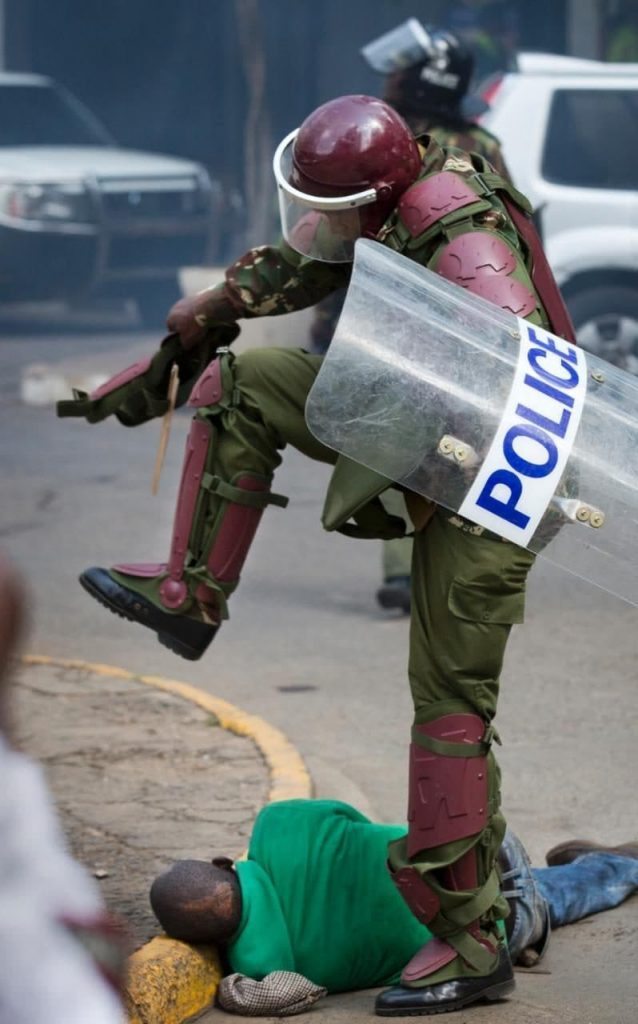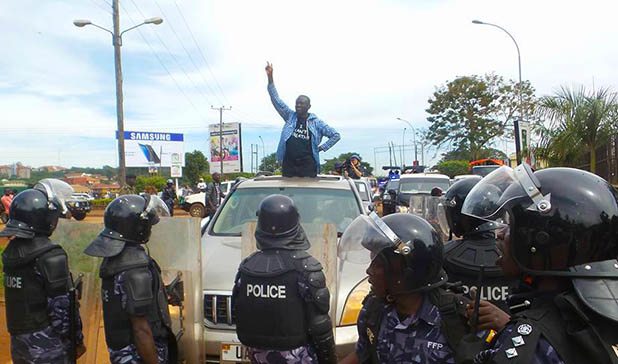Democracy is an ideal approach to governance that many heroes across Africa have fought and died for, yet its implementation often comes at a costly price, especially in our mother land. It’s safe to say that Africa has a chequered past when it comes to elections.
Electoral violence in Kenya, Chad, Uganda, Zambia, and Egypt have left particularly painful memories for citizens to recover from.
The reasons behind electoral violence may vary but there are a few overlying factors, including:
- Ethnicity: The struggle between populous tribes for “a slice of the cake” and the notion that one ethnic group may miss out on “a share of the spoils.”
- Lack of trust in electoral systems: A study by Afrobarometer, a pan-African research network, done in September last year revealed that only 41% of Africans believed that their most recent election was “free and fair” and only 25% trusted their electoral commissions “a lot.”
- Perception that the outcome will be close: Even with local or parliamentary elections, areas that are thought to be cosmopolitan or “swing votes” are hotly contested and are more likely to witness some form of electoral violence.
- Lack of democracy: In 2015, Burundi plunged into chaos when President Pierre Nkurunziza announced that he will be running for a third term in office, despite the country’s constitution limiting presidents to only two terms.
Security before, during, and after elections has always been a primary concern for African countries. Some of the predominant security concerns across the continent include:
- Civil Unrest:
Civil unrest, which is often caused by riots, protests, and sometimes outright civil warfare, is quite common across the continent. In Burundi, for instance, at least 167,000 citizens were forced to flee the country between April and July 2015. Civil unrest eventually led to an attempted coup in May 2015, which was eventually thwarted by a military that was largely supportive of the ruling regime.
Here in Kenya, the build-up to the August 8th polls has seen varying degrees of civil unrest play out, going back to demonstrations organized by the opposition against the Independent Electoral and Boundaries Commission (IEBC) last year. The recently concluded party primaries also saw protests and riots as rival political camps clashed.
- Police Brutality:
The West African country of Guinea was under the spotlight in October 2015 following a disputed presidential election that saw the incumbent, Alpha Conde, secure a second five-year term in office. A report by Amnesty International and Human Rights Watch attributed 12 deaths to state security forces in the build-up to the polls. The country’s legislative elections in 2013 were even more violent, leading to the deaths of at least 60 civilians.
Coming back to the local political scene, we’re pretty sure that the name Boniface Manono will ring a bell. No? Well, this image surely will:
The image of an unconscious man lying on the road and being assaulted by police officers during the anti-IEBC demonstrations generated outcry from local and international observers. Five people are said to have been shot and killed during the demonstrations with 14 others sustaining bullet wounds.
- Internet Shutdown:
Testament to the uptake of smart phones and the internet across Africa, 2016 saw a number of countries employ means to either filter content or block out online traffic entirely. This wasn’t always with regards to elections, as was the case in Algeria, where a shutdown was used to stop students from cheating in exams; or in Ethiopia and the Democratic Republic of Congo where online activity was limited in order to quell protests.
However, leaders in Gabon and Gambia restricted access to the internet during critical electioneering periods, while Ghana also flirted with the option to restrict internet access during last year’s presidential elections.
Locally, telecom giant Safaricom, who has 65% of the mobile market share in Kenya, recently took to the media to allay fears that their network would be compromised in the lead-up to the August polls. In January, the Communication Authority also moved to assure the public that internet access will not be compromised before, during, or after the elections.
- Oppression of the Opposition:
We don’t have to go too far back in history to find examples of ruling administrations oppressing opposition parties. Ugandan President Yoweri Museveni, who has been in office for 30 years, was re-elected for another term in 2016 and is currently the longest-serving president in the region. His campaigns were marred by oppressive tactics meant to crush the opposition, particularly through the arrest and detention of opposition leader Kizza Besigye on multiple occasions, including for holding an alternate inauguration ceremony where he was “sworn in” as president to protest an electoral process widely seen not to be free or fair.
In Burundi, three of seven presidential candidates boycotted the July 2015 polls and went into exile for security reasons, refusing to participate in peace talks after the elections.
- Electoral Malpractices:
As referenced earlier in this piece, only 25% of 54,000 Africans polled across 36 countries have faith in their electoral system and the same percentage of those polled say they “somewhat” trust their electoral commissions. Additionally, 41% believe that their most recent election was free and fair, while 49% believe that their election either had minor or major issues, or wasn’t free and fair at all.
An example of this would be in Zanzibar where the presidential election in October 2015 was annulled due to fraud allegations. The opposition then boycotted the second round of the election in March 2016 for similar reasons, which resulted in incumbent President Ali Mohamed Shein securing 91% of votes. The re-election of Zambian President Edgar Lungu in 2015 was also contested by the opposition due to “polling irregularities and bias in favour of the incumbent.”
This article was written by Lloyd Gitonga on behalf of Securex Agencies Ltd. If you’d like to learn more about how to better secure your home or business, visit www.securexafrica.com.



